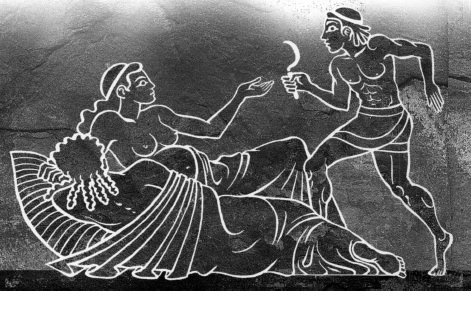Gigantes (Giants) Greek The offspring of Gaia and the blood of the wounded Uranus.
Publié le 26/01/2014

Extrait du document

Gigantes (Giants) Greek The offspring of Gaia and the blood of the wounded Uranus. Gaia prompted the giants to attack the Titan gods, and the War of the Giants began. The gods finally won, with the help of the hero Heracles, who used his bow to good effect. Zeus killed Porphyrion with a thunderbolt, Athene killed Enceladus, and Hephaestus hurled red-hot iron. Dionysus tripped up the giants with his vines. Apollo, Hermes, and Poseidon also joined in. The giants were completely defeated. Scholars say that the battle represented the conflict either between barbarism and order, or between humans and the forces of nature.
Liens utiles
- Hecatoncheires (Hecato nchires) Greek The hundred-handed giants, offspring of Gaia and Uranus.
- Cyclopes (1) (Singular: Cyclops; Round-eyed) Greek Three sons of Uranus and Gaia, large and strong, each with one eye in the middle of his forehead; siblings of the Hecatoncheires, hundredhanded giants, and the younger Titans.
- Mnemosyne (Memory) Greek A Titan, daughter of Gaia and Uranus; with Zeus, mother of the Muses.
- Oceanus Greek The Titan son of Gaia and Uranus and the brother and husband of the Titan Tethys; father of all the Oceanids and all the rivers and seas of the world.
- Phoebe (Bright) Greek A Titan, one of the daughters of Uranus and Gaia.





